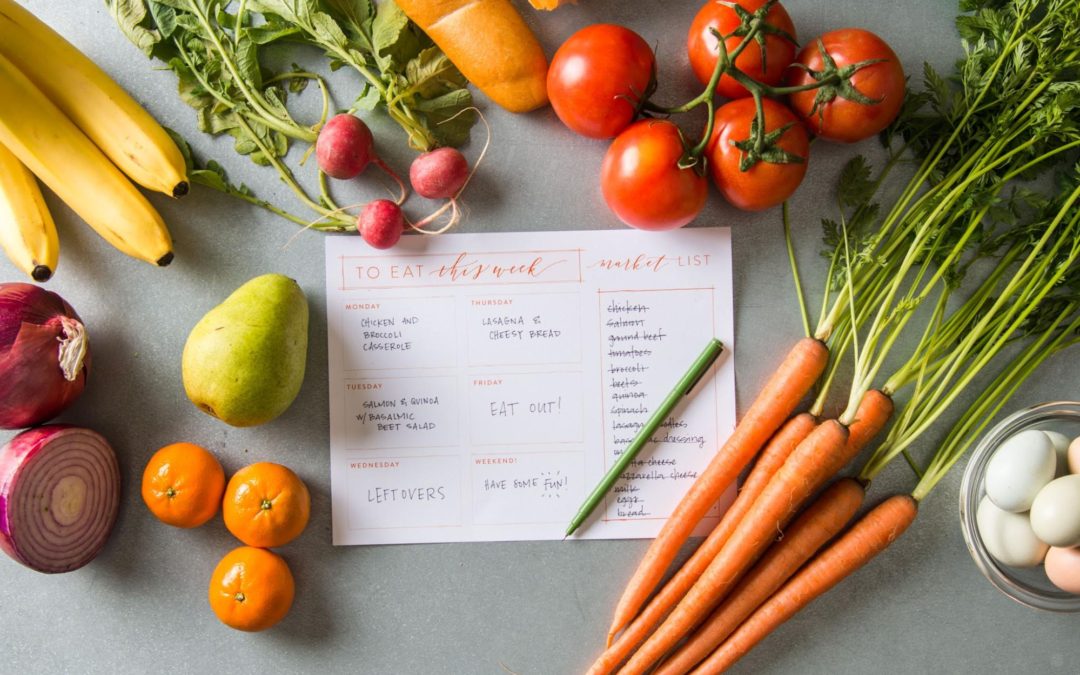As eaters, we are all meal planners. It’s just a matter of whether we plan a week before, a day before or moments before we eat. We probably all have at least one recent experience of finding ourselves in a pickle (or ordering pick up) because our plan fell through. Waiting until the last minute to decide what to eat can lead to poor food choices, unnecessary stress and over-spending on food.
We’d like to present another option: strategic meal planning.
We know, it’s not mind blowing and you’ve already come up with a few reasons why it won’t work well for you: you don’t have enough time or you’ve tried it and it stressed you out. We’re here to break down those barriers because we truly think that meal planning saves time, saves money and makes healthy eating easier.
SAVE TIME
First of all, meal planning saves time. Yes it takes time, but more often than not you will find that you spend less time acquiring food if you have a plan. The reality is, we all spend time acquiring food every day. If lunch time rolls around and you haven’t thought about what you’re going to eat before your stomach growls, you have to spend time deciding what to eat, making or going to get that food, and eating it. If you aren’t starting from scratch, you don’t have to decide, make or acquire; you just have to eat!
Meal planning can be a quick and efficient process. After some practice, it can be done in 30 minutes per week, maybe less. This is a net gain in your time bank.
SAVE MONEY
Effective meal plans also save money. When we don’t have a plan, we are more likely to make impulse purchases, whether that be at the grocery store or at restaurants. When we have a plan, we purchase the food we are actually going to eat. Not only that, but if we use smart strategies, like keeping an inventory of what we have on hand, we can save money and decrease food waste.
EAT BETTER
Let’s face it, deciding what to eat in the moment at the end of a long day sucks. It’s another decision you have to make after a day already spent “adulting”. We are likely to fall into one of two pits:
1) “Screw it, I’m too hungry.” Then you end up ordering in from a restaurant with likely larger portions than you would ever have at home.
2) “I’ll just make something quickly.” Quick food, without any forethought, often relies on packages and/or starch. Well balanced meals require the forethought of a stocked pantry, fridge and freezer.
Either way, the stress over our health and nutrition related goals sets in. Take away the guess work and last minute decisions by setting aside some time to plan each week. That way the decision is made for you when you’re tired and hungry.
The bottom line: meal planning takes a bit of time up front; however, it’s an investment of time that ultimately saves time, saves money and makes healthy eating easier.
Ready to get started meal planning? We want to teach you how to be an effective meal planner. Lucky for you we help clients every week with personalized meal and snack planning.
Schedule your free call with a RESULTS dietitian to get started. We want to teach you how to be an effective meal planner.


What To Eat Before & After Your Workouts
Enter your email for FREE access to the exclusive resource.
You have Successfully Subscribed!
100% privacy. No spam.